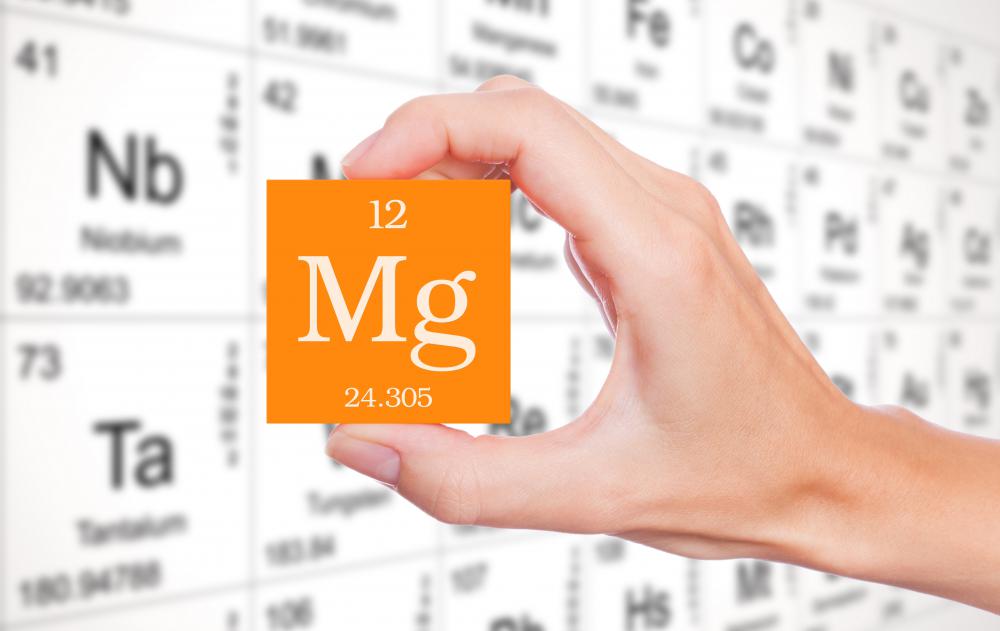At WiseGEEK, we're committed to delivering accurate, trustworthy information. Our expert-authored content is rigorously fact-checked and sourced from credible authorities. Discover how we uphold the highest standards in providing you with reliable knowledge.
What is Magnesium Gluconate?
Magnesium gluconate is a mineral supplement that can be purchased over-the-counter or by prescription. It is most often prescribed when magnesium levels in the blood are too low. Magnesium is a mineral that the body needs to keep the nervous system, muscles, and other physiological processes working properly. Low blood levels of this nutrient can be caused by vomiting, diarrhea, some kidney conditions, and many other illnesses. Conditions that cause problems with the digestive system are usually the reason behind low blood levels of this mineral.
Magnesium benefits go beyond regulating the body's nervous system and muscles. Calcium, another essential mineral, is absorbed by the body more easily when magnesium is present in the proper amounts. A healthy level also helps stabilize heartbeat, blood pressure, and the blood's ability to clot. People with correct levels are also less likely to suffer from strokes, blood clots, and heart attacks than those with deficiencies. Magnesium gluconate supplements are even sometimes given after strokes and heart attacks to help aid in the recovery process.

A balanced diet should provide enough daily magnesium for most healthy people, making the remedy unnecessary. Though it is available over-the-counter in some places, care must be taken with this and any supplement. Before a doctor prescribes the supplement for a magnesium deficiency, he or she should ask about things like the possibility of pregnancy and breastfeeding. This is because it is unclear whether magnesium is transferred to the baby and if that could cause harm. Doctors should also ask about allergies, other prescription medications, and supplements and any chronic illnesses.
Questions like these are designed to make sure that it is safe for the patient to take magnesium, and to determine the right dose. It is possible to suffer from magnesium overdose. Someone who takes too much magnesium gluconate may have symptoms like a slow heartbeat, light-headedness, weakness, fainting, disorientation, and flushed skin. Some people may have an allergic reaction to magnesium gluconate. Serious reactions include things like facial swelling, a swollen tongue and throat, hives, vomiting, and tingling skin. Anyone with these symptoms should seek medical attention immediately by calling their local emergency services.
Less serious side effects from magnesium gluconate may include mild diarrhea, upset stomach, gas, and bloating. Anyone who experiences these symptoms should avoid taking any more doses before speaking to a doctor about them. This can help prevent more serious side effects and ensure that the supplement is the right choice.
AS FEATURED ON:
AS FEATURED ON:











Discuss this Article
Post your comments